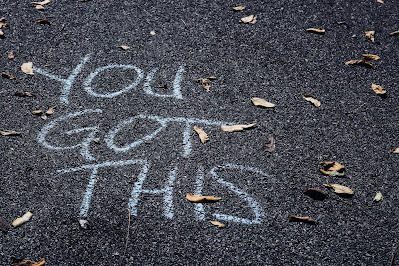by Rav Haggai Londin, yeshiva.co, translated by Hillel Fendel
Yom Kippur is less than a week away, and for many of us, its approach is cause for unease and disquiet. Precisely during this period of the holy High Holidays, poisonous doubts creep into our thoughts and hearts: "Last year I asked forgiveness for my sins and errors; I prayed from the depth of my heart; I promised myself I would not fall into the same traps – and behold, it didn't work! So what's the point of all my teshuva [commitment to return to one's true inner self]? Will anything be different this Yom Kippur than last time or the time before?"
The answer is: Yes, it most certainly can be! It depends where we are coming from. If what we seek is perfection, then we are very likely headed for a defeatist and unforgiving attitude towards both ourselves (in the best scenario) and everyone around us (in a worse scenario). However, when our goal is simply to always improve and become better, without defining an "all or nothing" goal, we fill ourselves with compassion – towards ourselves and others.
The ability to forgive ourselves stems from the trait of compassion – which often in the Western world is associated with vitur [concession]. This is a misunderstanding. Our Sages teach that we must not view our compassionate G-d as simply overlooking our faults and forgetting about our sins. We don't ask G-d, in His mercy, to "cut corners" – for the Divine truth cannot be erased and must be revealed. It would be like asking an arithmetic teacher to "have pity" on a student and not detract credit for writing 2+2=5.
Rather, we must understand the root of the Hebrew word for compassion, which is rachamim. It stems from the same root as rechem, which means "womb" – the place where the fetus develops before it is born into the outside world. It is the place where new life is created. As such, the ability to have rachamim and to forgive - ourselves and others - is the facility to give trust and to enable a new beginning. We forgive ourselves not because we want to forget or just "move on," but because we believe that even though right now we are failing, we will yet sprout new strengths that will lead us to our desired objectives.
The ability to forgive means to be patient and to understand that our world and everything in it - including me! - advances slowly but surely. There are highs and lows, but the general direction is forward. A mature person knows there is no such thing as total "victory," and that we cannot expect to never again repeat a mistake or a wrong. To say "from now on, I'll never do that again" is not true. We rather understand that I can/will improve somewhat tomorrow and the next day – and this enables me to forgive myself and live with my failures.
This is why we begin Yom Kippur with the Kol Nidrei recitation. It refers to all the vows, oaths, and resolutions I have made in the past, which stand for all the ropes and cords that bind us to our failures of the past year. We declare that they are all herewith rendered null and void, la shririn v'la kayamin, no longer extant or binding. The ability to begin again is not mere naivety, but rather a mature understanding of the concept of "process." It's not about attaining a goal, but rather about making progress all the time. If this year I succeeded in concentrating on my prayers for five minutes more than last year, or taking part in one additional weekly class, or speaking a bit less gossip and slander – these are all fantastic achievements, which should motivate me with the good feeling necessary for making even further progress in the coming year.
When we recite Kol Nidrei, we are reborn and understand that our failures are temporary and transient, while our teshuva is our stability. This explains why we declare as an introduction to Kol Nidrei that "we hereby permit sinners to join us in our prayers" – because the state of being a sinner is temporary, while our soul is permanent.
The concept of "process" is also expressed in the Yom Kippur service of the High Priest in the Holy of Holies. During the times of the Holy Temple, this service was the primary aspect of Yom Kippur. Its climax was the Priest's entry into the Holy of Holies – a spot so holy that it was totally off limits to everyone, except for this very person on that very day. Once inside, the High Priest would offer the k'toret, a type of incense comprising 11 different types of ground-up spices; all of them had a pleasant aroma, except for one, known as helb'na, galbanum, which was quite pungent. Fascinatingly, when all 11 were mixed together and offered as an incense, the odor of the galbanum became pleasant. We thus see that on Yom Kippur, when we "tie" together (the word k'toret comes from the Aramaic root k.t.r., which means "tie") all the elements of life, then even the evil forces, become good. In the course of the broad context of life, we gradually sweeten the bad; life becomes filled with compassion, even upon the negative forces, and we rectify them as our lives move forward.
This year, perhaps even more than in other years, we have very much to pray for on the national level. The State of Israel faces complex challenges in all areas: security, economics, [health,] and chiefly spirituality. This Yom Kippur, we will stand before our G-d, and before ourselves, and boldly declare our intentions to free ourselves from our previous lives, from our oaths and unhealthy fixations and complexes – and open ourselves to new life, to life of compassion, to life of a new year.

No comments:
Post a Comment